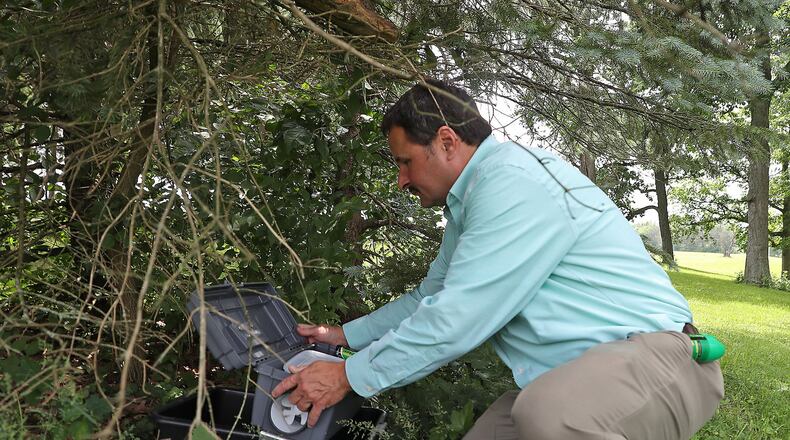Previously samples were collected this year in southwest Springfield in early August, on the west side of Springfield in late July, and in the south end of Enon in Mad River Township in early July.
MORE: Clark County Health District: Positive West Nile mosquito samples up over last year
Emma Smales, health district spokeswoman, said previously that Clark County has more positive samples of West Nile than this time last year.
Smales said the increased number of mosquitoes is due to the heavy rainfall Clark County experienced in May and June.
However, the mosquito population is beginning to decrease in the county.
“Naturally occurring breeding sites are decreasing as we continue to experience a lack of rain. However, residents can still help protect themselves by getting rid of water that may be trapped in things like buckets and gutters,” said Larry Shaffer, Director of Environmental Health at CCCHD.
Shaffer said the CCCHD has found West Nile Virus positive mosquitoes throughout Clark County.
“They are not limited to specific areas so protecting yourself is key,” Shaffer said.
The best way to avoid West Nile is to prevent mosquito bites using what the CCCHD calls the ‘AVOID, PLAN, STOP,’ plan.
Recommendations under the plan include; applying repellents to exposed skin, wearing long sleeves and pants, doing outside activities at times when mosquito activity is less, getting rid of mosquito breeding sites by emptying or treating any standing water on property and making sure screens on windows and doors are free of holes or rips.
MORE: How to avoid West Nile virus in Clark County
West Nile is most commonly spread by infected mosquitoes and can lead to severe fever, encephalitis (inflammation of the brain) or meningitis (inflammation of the lining of the brain and spinal cord).
According to a statement from the health district, approximately 80% of the people who are infected with the virus will not show any symptoms, but there is no way to know in advance if someone infected will develop an illness.
Symptoms typically show up between three and 14 days after being bit by an infected mosquito. Symptoms can range from severe to mild and include; high fever, headache, neck stiffness, stupor, disorientation, coma and tremors.
The CCCHD has sent an alert to the local medical community to help facilitate quicker human diagnosis of West Nile Virus. Although, there is no one specific treatment for the infection, treatment is based upon symptoms.
According to the Center for Disease Control, West Nile virus infections in humans has not been reported in the state of Ohio in 2019, as of Aug. 6.
About the Author
